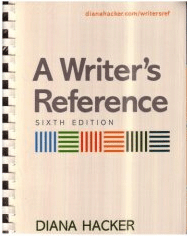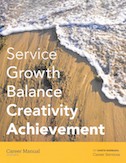Writing 109ST: Writing for Science and Technology
Course Syllabus
Course name: Writing for Science and Technology
Designator: Writing 109ST
Instructor: Doug Bradley
Course website: http://www.dougbradley.net/courses/writ109st/
Term: Fall quarter 2018 (27 September – 07 December 2018)
Days/times/location:
11:00 – 12:15, HSSB 1236 [enroll code 51193]
Office hours: South Hall 1523, Wednesdays 9:00 – 12:00, and by appointment.
Instructor Office: South Hall 1523
Cell phone: (805) 680-2333
E-mail: doug@dougbradley.net
Mail box and drop box: The blue drop box is located outside the Writing Program mailroom at South Hall 3421, Mondays–Fridays, 8:00 am –
5:00 pm. Please be certain that both your name and mine are on anything you
place into the drop box.
Course Readings (required)
Readings are linked electronically through this course website and password protected. To access readings, click on the "Readings" link in the navigation bar (left); be sure to read them in advance of class. EITHER PRINT AND BRING TO CLASS A HARD COPY OF EACH ARTICLE ON THE DAY(S) SCHEDULED FOR DISCUSSION, OR BRING AN ELECTRONIC BROWSER TO ACCESS READINGS ELECTRONICALLY.
Course Texts
Required
We will use Diana Hacker's A Writer's Reference throughout this quarter as a helpful writing companion; it is available in the USCB Bookstore, and in most local bookstores or online. We will also use the UCSB Career Manual 2014–15, available free at UCSB Career Services.
 |
A Writer's Reference, Diana Hacker NOTE: There are many used copies of this popular writing reference in local bookstores (including the UCSB Bookstore). If you do not wish to pay full price for a new (8th ed.) copy, it's okay to buy an older, used version. |
 |
UCSB Career Manual 2018–2019 |
Other texts will be posted online (see the Readings page) and/or listed for you to access via the library. |
Recommended
 |
How to Write & Publish a Scientific Paper (7th Edition), Robert A. Day and Barbara Gastel NOTE: If you ever intend to write and/or contribute to a peer-reviewed research journal article, this is a must-have book. It provides an excellent reference for both seasoned and first-time authors; I recommend it to all graduate students and academics with whom I consult. A seventh edition of this text is available at the Reserve Desk of Davidson Library for two-hour check-out. |
Do you have a physical or mental disability?
If you have a disability and would like to discuss special academic accommodations, please contact me as soon as possible. To apply for DSP services, see: http://dsp.sa.ucsb.edu/general-information/applying.
Writing 109ST Requirements, Grading and Schedule
Course Description
The official UCSB course catalog description for Writing 109ST (Writing for
Science and Technology) reads, “Analysis and practice of various forms
of scientific and technical writing, both academic and professional, such as
reports, proposals, journal articles, and abstracts. Attention to research methods,
design of papers, development of graphics, technical style, and editing strategies.”
This course is intended to assist scientific-technical majors in preparing for
their professional writing needs, and will help non-science majors intending
to work within scientific-technical realms. In short, you do not need a science
or engineering major to take Writing 109ST; however, the course will be particularly
helpful to those pursuing scientific and technical careers.
Please note that Writing 109ST is not a course dedicated to “technical
communication,” per se, although some of our material will bear upon this
sub-discipline. Students interested in technical communication are referred
to the UCSB Professional Writing minor, which offers an excellent and comprehensive
technical communication emphasis. The UCSB Writing Program also offers another course that focuses upon techincal writing, Writing 107T, "Technical Writing."
During the quarter, we will examine several examples of scientific-technical
writing. Our examples will include scientific criticism of social-historical-philosophical
issues, lab reports, scientific articles for lay, professional and expert audiences,
research papers, etc. Much of our effort will be directed toward learning the
rudiments of “hard-core” science writing as used in professional scientific
journals and reports. This, in turn, will necessitate a brief examination of
what science is. A lot of poor scientific writing is simply due to bad science
and no amount of “good writing” can fix it. [Lesson one: the quality
of your scientific writing (esp. primary and secondary research) cannot exceed
the quality of your science!] We will also examine the peer review process,
which is a necessary part of all genuine scientific reporting and publishing,
and how to properly cite sources in written works. At the very start of our
quarter, we will look at how scientific professionals represent themselves in
their correspondence and credentials. Everyone will be expected to draft a resume and/or curriculum
vitae and submit professional-quality correspondence. When your studies in Writing
109ST are completed, you should be capable of tackling basic written
tasks within most scientific laboratories, including formal reports, articles,
and oral presentations.
Course Requirements
In a nutshell: attending class, reading and writing. Because we are covering
a great deal of material and will frequently work in peer groups, you must come
to class. Period! Beginning week one, you will be expected to read various materials (see schedule on the course website) and be prepared
to discuss in class. We will have weekly written assignments, both
in and out of class.
Assignments: Readings
You are responsible for reading any articles posted to the course website, plus outside
research reading for your final conference paper and presentation. Additional hardcopy reference
readings may be posted to the Reserve Book Desk to assist you with various assignments.
You should plan on approximately three hours of reading per week, minimum. You
are also expected to develop (or continue) the practice of annotating your readings,
including the development of a personal notational style. We will discuss this
more in class. Finally, you may be asked from time to time to summarize your readings, either in class or online.
Assignments: Conference Paper and Presentation
Your final assignment will entail a professional-quality conference paper and
presentation. You may select from four formats: 1) primary research paper; 2)
secondary research paper; 3) review of the literature within a chosen sub-discipline;
or, 4) science article written for lay audiences on a scientific-technical topic.
You will present your conference paper at the end of the quarter in a 15-minute,
professional-quality presentation using an electronic format (e.g., PowerPoint or Keynote).
All conference papers and presentations must be cleared with the instructor
before commencing work.
Assignments, Short Format
A total of eight short assignment formats will be assigned during the quarter:
Assignment #1: Personal statement
Assignment #2: Job and expenses study
Assignment #3: Resume or curriculum vitae (CV)
Assignment #4: Cover letter
Assignment #5: Proposal memo
Assignment #6: Online technical instructions
Assignment #7: Technical graphic
Assignment #8: Survey and numeric organizer
Assignment #9: Analytic summary
Assignments, Long Format
Two long-format assignments are due toward the end of the quarter:
Written conference paper, 15 pp. min.
Oral presentation of conference paper, 15 minutes max.
Assignments: Article reviews (Journal Club)
We will begin each class with three-minute article reviews from students. You
will be expected to present a STEM (science, technology, engineering, mathematics) article with a class peer. The choice of article is left to you. Surprise us! Be certain that
you write your names and date on each article submitted and your speaking notes;
they will go into your portfolios.
Tasks for reviews (five minutes max!):
- Briefly describe the author, article, and topic.
- Identify the publication or organization where the article originated.
- Explain the relevance of the article. Answer the questions, Why is this important? and To whom?
- Outline the current progress of the field your article touches upon, and suggest areas for further research and inquiry
- Be prepared to answer questions.
Attendance
You are expected to attend all classes! If you have difficulty attending class
due to an emergency or illness, contact the instructor via email as quickly
as possible.
Electronic Device Use in Class
This is largely a matter of common sense and courtesy: It is an insult (to anyone) to attend closely an electronic device when they are speaking to you and/or engaged in a mutual activity with you. That being said, there will certainly be times when having a browser in our class will be helpful to our activities and assignments. It is also no big deal to send-receive brief electronc messages (e.g,, "See you at lunch," etc.) while otherwise engaged in work. I will assume that you are a grown-up and can properly balance your use of electronic devices, but if it is obvious that you cannot balance your use, I will be talking to you.
A great deal of research has been conducted on "e-ddiction." One early study at the University of Maryland, the "World Unplugged Study" of 2010, highlights some of the more obvious symptoms of electronic addiction; the study has since been updated and expanded to an international scope. If you find yourself unable to focus on class activites due to use of electronic devices, please see UCSB Counseling and Psychological Services for help.
Grading
Grading is based upon: 1) class assignments (Assignments #1–8); 2) your conference
paper and presentation; and, 3) classroom participation. The weighting of each
for determining your final course grade is as follows:
Assignment |
Portion of Course Grade |
| Short Assignments (#1–9) | 40% |
| Conference paper (written) | 25% |
| Conference paper (oral presentation) | 15% |
| Classroom Participation (includes attendance, classroom discussions and exercises, journal club article-website reviews, and peer review work) | 20% |
Plagiarism
Plagiarism is the copying of a part or whole of another person’s work while
representing the work as your own; it is an extremely serious academic offense.
Avoid plagiarism by properly citing the sources of ideas, text and graphics
used in your work. Students caught plagiarizing will receive an “F”
grade in Writing 109ST and be dropped from the course. No conference paper containing
any plagiarized work will be accepted for course credit, regardless of quantity. Period....no exceptions!
Emergencies
If you experience or anticipate any emergency during the term bearing upon your
course work or attendance in Writing 109ST, it is your responsibility to contact
me as soon as possible. In lieu of contacting me, you may leave a message with
the Writing Program office, located in South Hall 1520 (893-7488).
